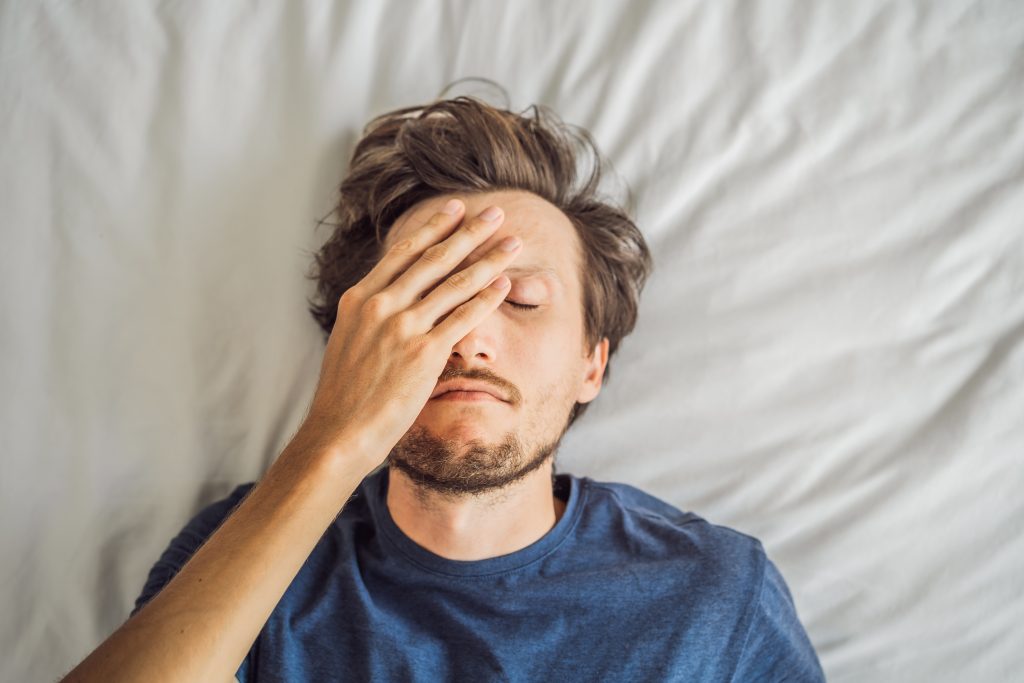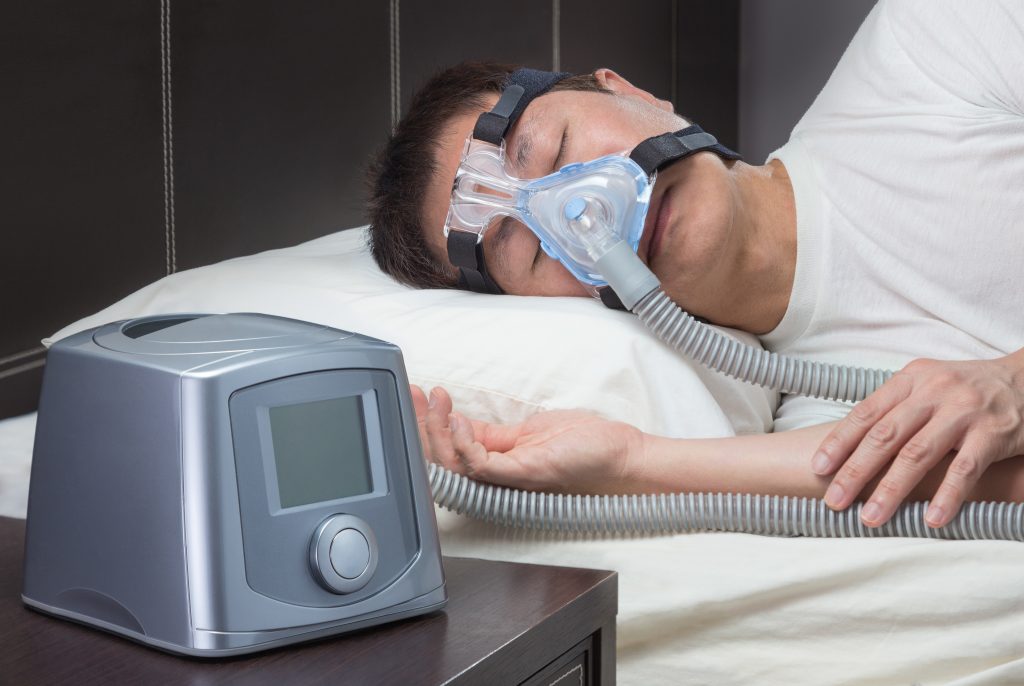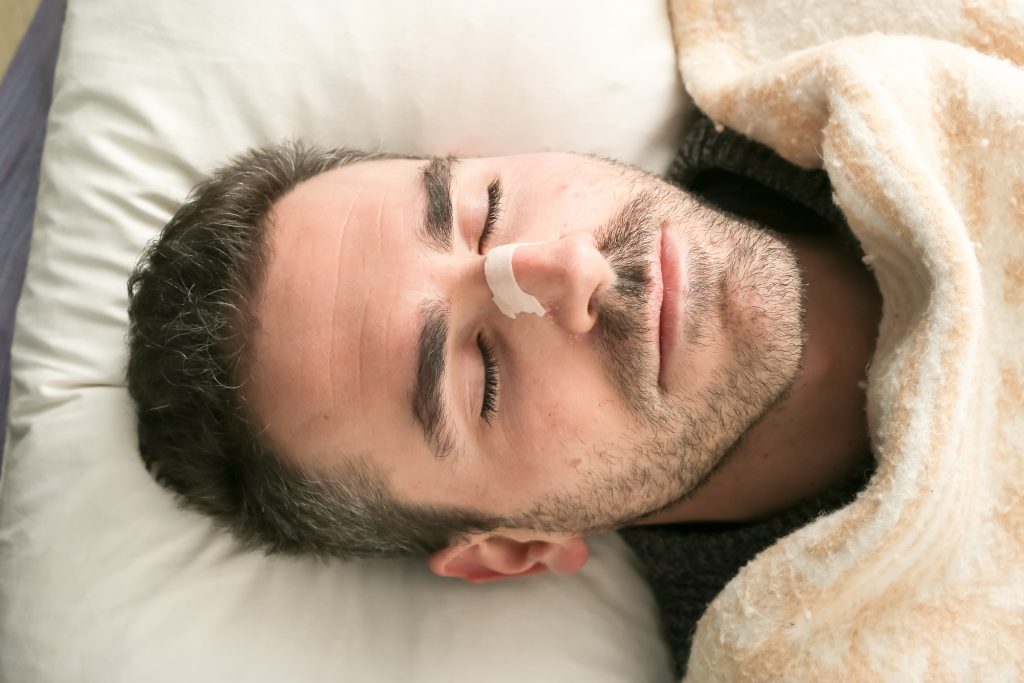It’s estimated that 45% of adults occasionally snore, while 25% snore regularly. Although it may seem like a minor annoyance, snoring can have serious health consequences if left untreated.
Snoring can lead to sleep deprivation, which may cause daytime sleepiness, frequent frustration or anger, difficulty concentrating, and an increased risk of high blood pressure, heart disease, stroke and other health issues. It can also lead to injury due to sleep deprivation and mental health issues such as depression. Sleep deprivation also causes snoring, which means it becomes a cause-and-effect cycle that’s detrimental to your health.
In addition, snoring can be disruptive for bed partners and those sharing a bedroom with the snorer. Learn about what causes snoring and how you can stop it, from using the best nasal strips for snoring to visiting your doctor.

Obstructive Sleep Apnea
Sleep apnea is a potentially serious sleep disorder characterized by pauses in breathing while asleep caused by an obstruction in the airway. If you think you may have sleep apnea, it is essential to seek medical advice.
Fortunately, several effective treatments are available, such as Continuous Positive Airway Pressure (CPAP) therapy. CPAP machines send a constant stream of air into the sleeper’s airway, keeping it from collapsing. Other treatments and lifestyle changes may also be used to treat sleep apnea.

Poor Muscle Tone In The Throat And Tongue
The throat muscles and tongue may become floppy or weak when sleeping, making it harder for air to move through the throat and leading to loud snoring.
Research has shown that exercises to strengthen the muscles around the airways, also known as myofunctional therapy or oropharyngeal exercises, can help reduce mild snoring and improve mild to moderate obstructive sleep apnea caused by lack of muscle tone. A trained myofunctional therapist often teaches these mouth exercises, but as with any exercise, they require time and effort to work.

Nasal Congestion
Congestion or blockages in the nose can make breathing more difficult while sleeping, causing air passages to become narrower and leading to snoring.
One of the most effective treatments for this is to use the best nasal strips for snoring. They will pull open the nostrils to allow more airflow, making breathing easier. To choose the best nasal strips for snoring, look for a strong and effective design and a size that fits comfortably on your nose without causing skin irritation or discomfort.

Alcohol Consumption
Drinking alcohol affects the muscles in the throat, making them too relaxed and preventing the airways from staying open when you sleep. Alcohol also impairs your overall quality of sleep, which can lead to more frequent or intense bouts of snoring.
Additionally, drinking alcohol before bed can cause dehydration, leading to an even narrower airway that can worsen snoring symptoms. Because of these effects, it’s best to avoid drinking alcohol close to bedtime if you’re prone to snoring. Even limiting your alcohol intake throughout the day might help reduce your risk of snoring at night.

Excess Weight
Being overweight or obese often means extra fat around the neck area, putting pressure on the throat musculature. This narrows the airways and increases snoring.
You don’t need to lose a considerable amount of weight to experience relief from snoring either; studies have shown that losing as little as 10% of body fat can reduce snoring significantly.

If you’re concerned about your snoring habits or think you may have sleep apnea, talk to your doctor about treatment options. Several treatments available may help improve your quality of life.
This story originally appeared on Don't Waste Your Money. Checkout Don't Waste Your Money for product reviews and other great ideas to save and make money.


